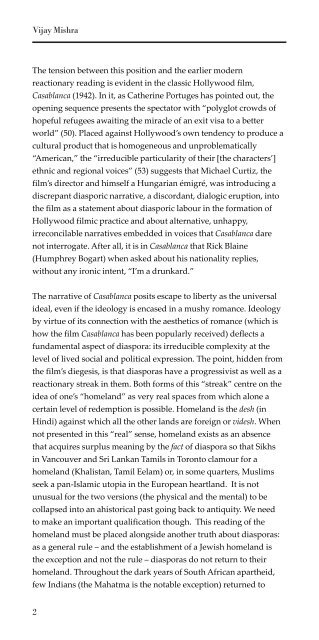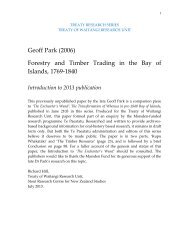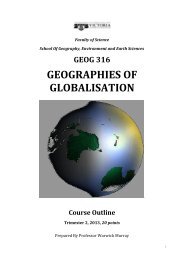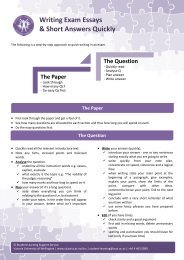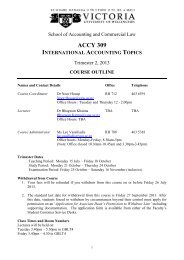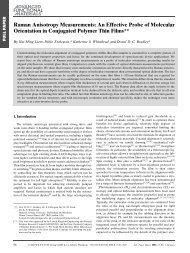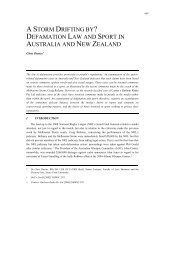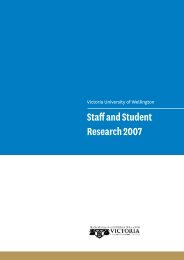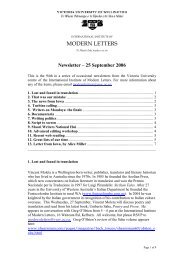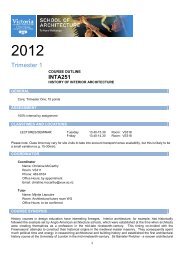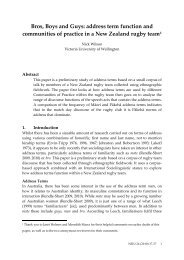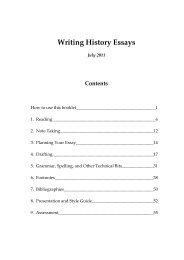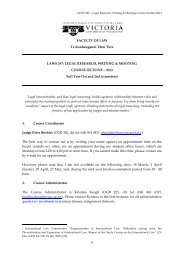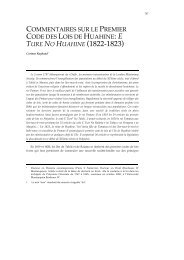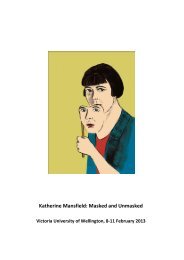The Diasporic Imaginary and the Indian Diaspora - Victoria ...
The Diasporic Imaginary and the Indian Diaspora - Victoria ...
The Diasporic Imaginary and the Indian Diaspora - Victoria ...
Create successful ePaper yourself
Turn your PDF publications into a flip-book with our unique Google optimized e-Paper software.
Vijay Mishra<br />
<strong>The</strong> tension between this position <strong>and</strong> <strong>the</strong> earlier modern<br />
reactionary reading is evident in <strong>the</strong> classic Hollywood film,<br />
Casablanca (1942). In it, as Ca<strong>the</strong>rine Portuges has pointed out, <strong>the</strong><br />
opening sequence presents <strong>the</strong> spectator with “polyglot crowds of<br />
hopeful refugees awaiting <strong>the</strong> miracle of an exit visa to a better<br />
world” (50). Placed against Hollywood’s own tendency to produce a<br />
cultural product that is homogeneous <strong>and</strong> unproblematically<br />
“American,” <strong>the</strong> “irreducible particularity of <strong>the</strong>ir [<strong>the</strong> characters’]<br />
ethnic <strong>and</strong> regional voices” (53) suggests that Michael Curtiz, <strong>the</strong><br />
film’s director <strong>and</strong> himself a Hungarian émigré, was introducing a<br />
discrepant diasporic narrative, a discordant, dialogic eruption, into<br />
<strong>the</strong> film as a statement about diasporic labour in <strong>the</strong> formation of<br />
Hollywood filmic practice <strong>and</strong> about alternative, unhappy,<br />
irreconcilable narratives embedded in voices that Casablanca dare<br />
not interrogate. After all, it is in Casablanca that Rick Blaine<br />
(Humphrey Bogart) when asked about his nationality replies,<br />
without any ironic intent, “I’m a drunkard.”<br />
<strong>The</strong> narrative of Casablanca posits escape to liberty as <strong>the</strong> universal<br />
ideal, even if <strong>the</strong> ideology is encased in a mushy romance. Ideology<br />
by virtue of its connection with <strong>the</strong> aes<strong>the</strong>tics of romance (which is<br />
how <strong>the</strong> film Casablanca has been popularly received) deflects a<br />
fundamental aspect of diaspora: its irreducible complexity at <strong>the</strong><br />
level of lived social <strong>and</strong> political expression. <strong>The</strong> point, hidden from<br />
<strong>the</strong> film’s diegesis, is that diasporas have a progressivist as well as a<br />
reactionary streak in <strong>the</strong>m. Both forms of this “streak” centre on <strong>the</strong><br />
idea of one’s “homel<strong>and</strong>” as very real spaces from which alone a<br />
certain level of redemption is possible. Homel<strong>and</strong> is <strong>the</strong> desh (in<br />
Hindi) against which all <strong>the</strong> o<strong>the</strong>r l<strong>and</strong>s are foreign or videsh. When<br />
not presented in this “real” sense, homel<strong>and</strong> exists as an absence<br />
that acquires surplus meaning by <strong>the</strong> fact of diaspora so that Sikhs<br />
in Vancouver <strong>and</strong> Sri Lankan Tamils in Toronto clamour for a<br />
homel<strong>and</strong> (Khalistan, Tamil Eelam) or, in some quarters, Muslims<br />
seek a pan-Islamic utopia in <strong>the</strong> European heartl<strong>and</strong>. It is not<br />
unusual for <strong>the</strong> two versions (<strong>the</strong> physical <strong>and</strong> <strong>the</strong> mental) to be<br />
collapsed into an ahistorical past going back to antiquity. We need<br />
to make an important qualification though. This reading of <strong>the</strong><br />
homel<strong>and</strong> must be placed alongside ano<strong>the</strong>r truth about diasporas:<br />
as a general rule – <strong>and</strong> <strong>the</strong> establishment of a Jewish homel<strong>and</strong> is<br />
<strong>the</strong> exception <strong>and</strong> not <strong>the</strong> rule – diasporas do not return to <strong>the</strong>ir<br />
homel<strong>and</strong>. Throughout <strong>the</strong> dark years of South African apar<strong>the</strong>id,<br />
few <strong>Indian</strong>s (<strong>the</strong> Mahatma is <strong>the</strong> notable exception) returned to<br />
2


